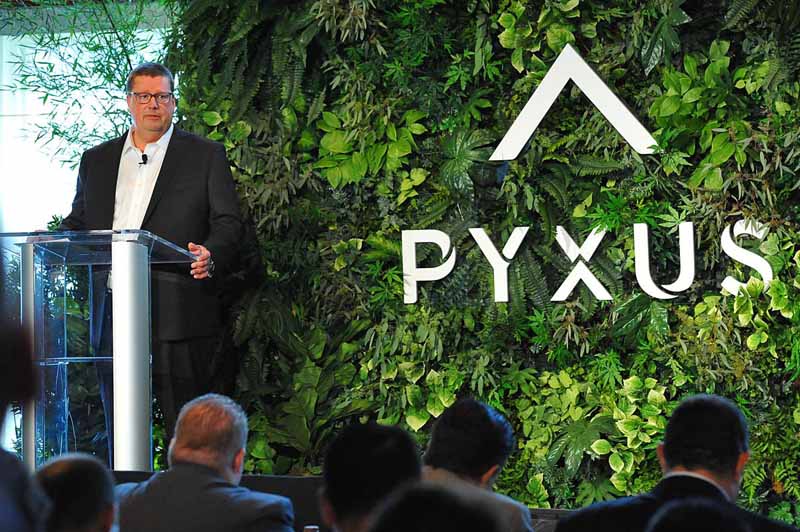Pyxus’ ESG Journey
- Also in TR Print Edition Sustainability
- May 1, 2022
- 0
- 5 minutes read


Advancing progress on key global issues
By Pieter Sikkel
It is hard to believe that our company will soon celebrate its sesquicentennial. To say that our business, the tobacco industry and the world in which we live and work has changed over the course of 150 years would be an understatement. In fact, if we were to solely reflect on the events of just the past few years—from uncertainties generated by a once-in-a-lifetime pandemic, the growing social divide and heightened geopolitical risk to the rapid escalation of climate change—there is no shortness of evolution.
These global events have led companies and their stakeholders to take a step back and ask, “How are the decisions of today impacting the world of tomorrow?” This sentiment is the driving force behind what we now refer to as ESG—environmental, social and governance: the three key areas used to measure a business’ ethical impact and approach to sustainability.
Pyxus is uniquely positioned to have a positive impact on key global issues, including climate change, farmer prosperity and human rights, and we have been incorporating sustainable practices into our operations for as long as I can remember. For example, in 1991, we launched the first of our now global reforestation initiatives, helping the forests where we operate to become more resilient in the years to come, and in 2012, we introduced our Agricultural Labor Practices program, setting on-the-farm standards that our contracted farmers must adhere to. We are quite proud of our efforts, but we recognized that the process behind them needed to be enhanced in order to advance progress on key global issues. That is why, in December of 2021, we introduced our ESG framework, providing the connection between our company’s business priorities and our purpose—to transform people’s lives so that together we can grow a better world.
Pyxus’ ESG framework takes the company’s three sustainability pillars—minimizing environmental impact; support for people and communities; and ethical and responsible business—a step further, identifying relevant focus areas and measurable goals to drive positive change and create long-lasting impacts. For example, one of our 12 focus areas is sustainable agricultural methods and practices. Within that focus area, we have set a goal of zero net global deforestation by 2030 in order to help grow a greener future. To date, our business has planted over 250 million trees worldwide as we work toward achieving our long-term goal.
In order to best position us for success, our ESG framework is supported by a robust governance and implementation structure, which we have based on an annual cycle of continuous improvement. This allows our business to identify and overcome challenges as they arise, prioritize local-level initiatives and leverage the leadership and skill sets of our employee base while holding us accountable for year-over-year progress.
Additionally, we have aligned our approach with the United Nations Sustainable Development Goals (SDGs), a call to action to address global challenges. There is increasing evidence that businesses that operate sustainably and in support of the United Nations SDGs—while reporting transparently about their progress—can deliver stronger growth and returns for all stakeholders. With this in mind, we publicly shared our company’s CDP scores, which are determined by data reported as part of the global nonprofit’s annual environmental disclosure process. We will also publish our first Global Reporting Initiative sustainability report later this year.
Moving forward, our company, the tobacco industry and the world in which we live and work will undoubtedly continue to change, and what tomorrow looks like will be defined by the decisions we make today. Companies, regardless of industry or size, have the opportunity to incorporate ESG into their business operations in order to address global issues and shift the paradigm. We encourage our tobacco industry partners to join us in integrating sustainable, measurable solutions so that together we can grow a better world.
Pyxus’ ESG strategy includes three key pillars underscored by the company’s purpose of transforming people’s lives to grow a better world:
Environment: to implement sustainable solutions that further improve the company’s environmental performance and reduce the environmental footprint of the company and its supply chain;
Social: to support the company’s employees, contracted farmers and the communities where it operates, protecting human rights and providing an equal opportunity for success to all; and
Governance: to operate responsibly and ethically in every action that the company takes.

